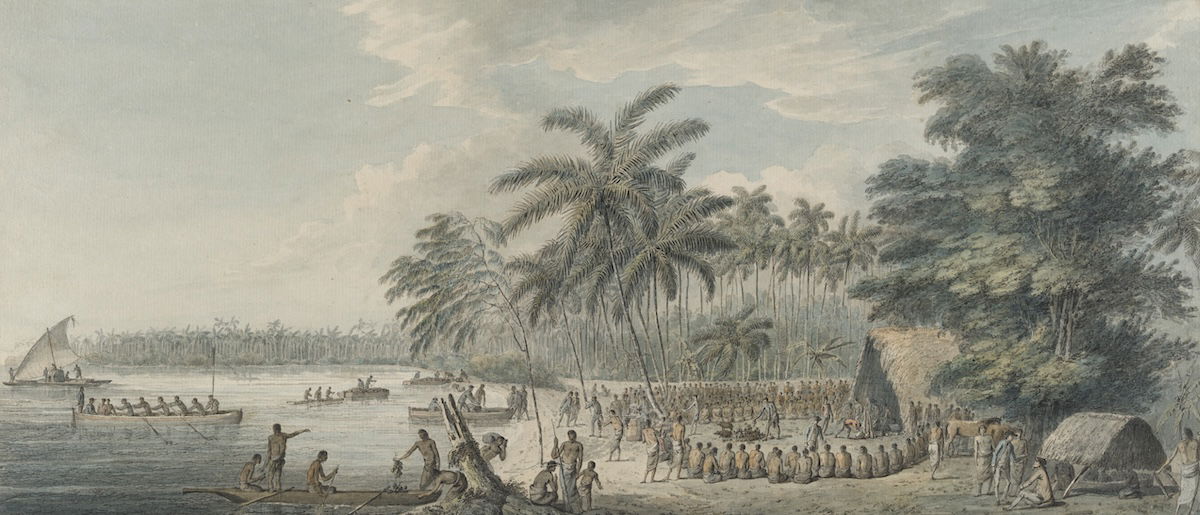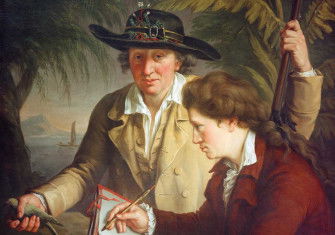Kings of the Pacific in an Age of Revolution
As revolutions swept across Europe, Polynesian polities also witnessed dramatic changes when monarchies were rebuilt and traditional societies transformed.

It was October 1793. Four days had passed and there was still no news of the naval officer, Count de Trobriand. The French ships Recherche and Espérance lay moored impatiently 25 miles outside the Dutch foothold of Surabaya, now the second largest city of Indonesia, wishing for their trials to be ended. With two thirds of the crew ill, mostly with scurvy, they longed for refreshment and comforting assurances.
Alexandre d’Hesmivy d’Auribeau, now the commanding officer, sick from an unknown ailment and probably under the influence of laudanum, sent out another boat, this time flying a white flag. Eventually, a Javanese chief brought out the devastating news: Louis XVI had been executed and France was at war with its neighbours, including the Dutch. A republic had been declared. All the men – and, unbeknown to many, one woman in disguise – were now prisoners of war. The European family had been torn apart and the diplomatic etiquette surrounding the provisioning of ships in the Pacific no longer held.







